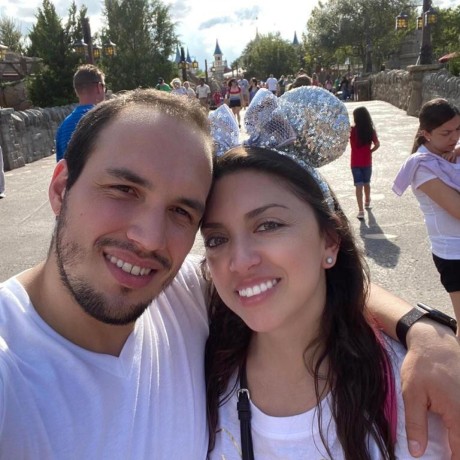(deprecated) Usage with React
(deprecated) Usage with React
As mentioned in the main documentation, ts-routeways is an agnostic solution, so you should be able to integrate it with React in the way it works better for you. However, here we show a quick example on how it can be used with a React application that uses React Router v6.
These hook makers are deprecated in favor of react-routeways, which provides a more consistent usage woth react-router-dom (v6+), and aditional helpers which makes the experiance of ts-routeways + react more natural, easier, and safer to use.
Define your router
As mentioned in the documentation, let’s first define a custom Routeway instance.
export const MainRoutes = Routeways()
.path({ name: "home", path: "/home" })
.nest({
name: "users",
path: "/users",
subRoutes: Routeways()
.path({ name: "view", path: "/view/:userId", pathVars: { userId: Codecs.Number } })
.path({ name "search", path: "/search", queryParams: { byName: Codecs.String, showAll: Codecs.Boolean } })
.path({
name: "edit",
path: "/edit/:userId",
pathVars: { userId: Codecs.Number },
queryParams: { autosave: Codecs.Boolean }
})
})
.build();
Integration with React Router v6
Now you can use the MainRoutes instance in the router. Use the .template() method
import { Route, Routes } from "react-router";
import { MainRoutes } from "./MainRoutes";
export function MainNavigator(): ReactElement {
return (
<Routes>
<Route path={MainRoutes.home.template()} component={Home} />
<Route path={MainRoutes.users.template()} component={Users}>
<Route path={MainRoutes.users.view.template()} component={ViewUser} />
<Route path={MainRoutes.users.search.template()} component={SearchUser} />
</Routes>
</Routes>
)
}
Create your custom hooks
You can also create some custom hooks based on React Router v6 hooks. These are just convenience abstractions that allow easy navigation, usage of query parameter(s) as React state, etc.
import { useLocation, useNavigate } from "react-router";
import {
makeGotToHook,
makeNavigatorHook,
makePathVarsHook,
makeQueryParamHook,
makeRouteParamsHook
} from "ts-routeways";
import { MainRoutes } from ".MainRoutes";
export const useGoTo = makeGotToHook(useNavigate);
export const useMainNavigator = makeNavigatorHook(MainRoutes, useNavigate);
export const usePathVars = makePathVarsHook(useLocation);
export const useQueryParam = makeQueryParamHook(useLocation, useNavigate);
export const useAllQueryParams = makeAllQueryParamsHook(useLocation, useNavigate);
export const useRouteParams = makeRouteParamsHook(useLocation, useNavigate);
Below you can find a more comprehensive description of what each hook maker does.
makeGotToHook(..)
Creates a hook that expects a Routeways route and returns a “goTo” function. I.e., a function that can be used as a callback or event handler.
const goToViewUser = useGoTo(MainRoutes.users.viewUser);
// ...
<button onClick={goToViewUser({ userId: 3 })}>See User</button>
makeNavigatorHook(..)
Creates a hook that returns a “Navigator” of your custom routes. This provides a more natural experience when imperative navigation is required.
const Navigator = useMainNavigator();
useEffect(() => {
if (!canViewUser) {
Navigator.home.navigate();
}
}, [canViewUser]);
makePathVarsHook(..)
Creates a hook that expects a Routeways route and returns an object with its path variables parsed from the current location.
const { userId } = usePathVars(MainRoutes.users.viewUser);
useEffect(() => {
getUserById(userId)
.then(user => setUser(user));
.catch(err => /* ... */);
}, []);
makeQueryParamHook
Creates a hook that expects a Routeways route and the key of one of the possible query parameters of that route. Then it returns a React state of that query parameter. Whenever the state of the parameter is changed, navigation is executed to change the query parameter in the source too. You can pass a third paramater to add a fallback in case the parameter is undefined. When a fallback value is used, the state type not a union of undefined anymore.
const [byName, setByName] = useQueryParam(MainRoutes.users.search, "byName");
// ^ type = string | undefined
const [showAll, setShowAll] = useQueryParam(MainRoutes.users.search, "showAll", false);
// ^ type = boolean
// ...
<input type="search" onChange={setByName} value={byName} />
makeAllQueryParamsHook
Creates a hook that expects a Routeways route and returns a React state of those query parameters. Whenever the state of the parameter is changed, a navigation is executed to change the query parameters in the source too.
const { queryParams, setQueryParams } = useAllQueryParams(MainRoutes.users.search);
const handleStatusChange = (status: Status): void => {
setQueryParams(prev => ({
...prev,
status,
page: 1
}));
}
// ...
<>
<Select
options={statuses}
selected={queryParams.status}
onChange={handleStatusChange}
>
<Pagination page={queryParams.page}>
</>
makeRouteParamsHook(..)
Creates a hook that expects a Routeways route and returns an object with all the path variables and query parameters as states. That is to say, it returns a pathVars state object along with its setPathVars function, as well as a queryParams state object and its setQueryParams function.
Note: This hook should be used in concrete complex situations where using all parameters as a single state is required. Keep in mind that a change on a single query parameter, for example, will cause a rerender on anything using the other query parameters. A setPathVars is not provided, though, because it’s not very common to change a path variable and expect to stay in the same view. Something should change, so it’s better to use a navigator in this specific scenario.
const { pathVars, queryParams, setQueryParams } = useRouteParams(MainRoutes.users.edit);
const toggleAutosave = (): void => {
setQueryParams(prev => { ...prev, autosave: !prev.autosave });
};
useEffect(() -> {
getUserById(pathVars.userId)
.then(user => setUser(user));
.catch(err => /* ... */);
}, [pathVars.userId]);
// ...
<input type="checkbox" onChange={toggleAutosave} value={queryParams.autosave}>
